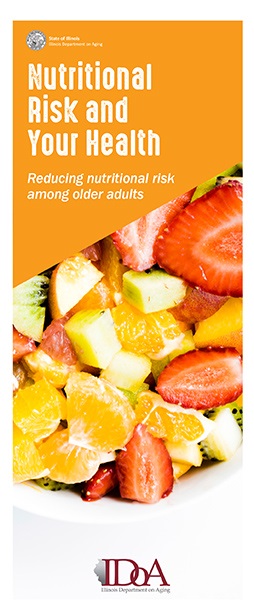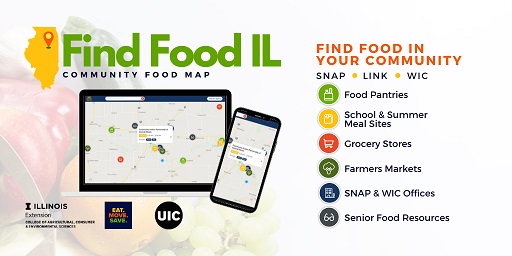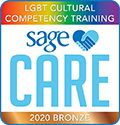Nutrition Programs
Since adequate nutrition is critical to health, functioning, and quality of life, it is an important component of home and community-based services for older adults.
The Illinois Department on Aging provides funding to local Area Agencies on Aging (AAAs) to contract with nutrition providers throughout the state. If you are interested in signing up for home-delivered meals, would like to participate in group (congregate) dining, access the nutrition screening (also available in Spanish), education, counseling, cooking classes, and other nutrition-related activities, contact your Area Agency on Aging or a nutrition provider in your area by using our map tool.
What are home-delivered meals and group (congregate) dining?
- Home-delivered meals: Volunteers deliver nutritious* meals directly to the homes of older adults age 60+.
- Group (congregate) dining: Nutritious* meals are served throughout the week at approximately 400 sites across the State, including senior centers, churches, senior housing buildings, community buildings, and restaurants and food trucks in certain areas.
*All meals served under the Nutrition Program must provide at least one-third of the daily recommended dietary allowances established by the Food and Nutrition Board of the National Academy of Sciences-National Research Council.
Additional Nutrition Resources and Information
Supplemental Nutrition Assistance Program (SNAP)
SNAP was designed to help end hunger and improve nutrition for low-income households and is administered by the Illinois Department of Human Services (IDHS). Benefits can be used to buy any food or food product for human consumption, plus seeds and plants for use in home gardens to produce food. For more information, visit www.dhs.state.il.us or call the Department of Human Services HelpLine at 1-800-843-6154, 1-866-324-5553 (TTY).
Farmer’s Market Nutrition Program
The purpose of the Senior Farmers Market Nutrition Program is to promote the routine consumption of fruits and vegetables as a part of the daily diet. Checks for seniors are distributed at local senior facilities through the cooperation of the Illinois Department on Aging, Area Agencies on Aging (AAAs), and Catholic Charities of the Archdiocese of Chicago. These checks can be redeemed for fresh fruits and vegetables at local farmers' markets in (37) counties. Nutrition education materials, including recipes, are also distributed. The Senior Farmers Market Nutrition Program season begins July 10th and ends October 31st. To see if you live in a participating county browse the Senior Farmers' Market Nutrition Program list and/or contact your local Area Agency on Aging (AAA) for more information.
Volunteer!
Become a volunteer to prepare or deliver meals to older adults in your community. Contact your local Area Agency on Aging or nutrition provider using the map tool.






